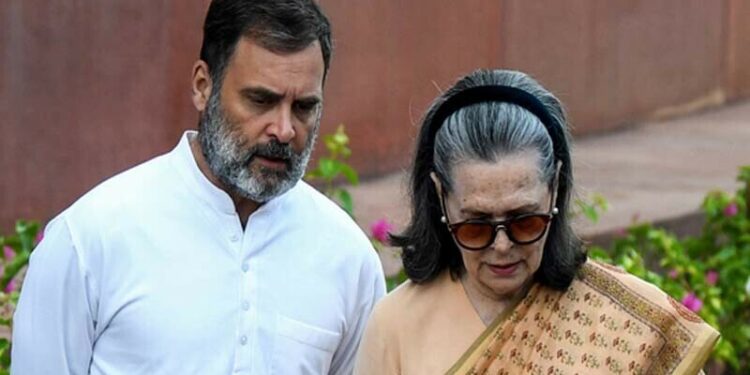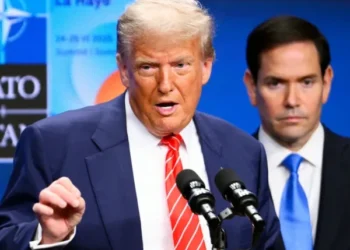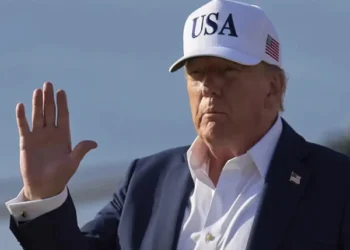Introduction: Major Development in Indian Political Landscape
In a major development with potentially far-reaching political implications, India’s opposition leader Rahul Gandhi and his mother Sonia Gandhi, both senior figures in the Indian National Congress (INC), have been formally charged with money laundering. The charges were filed by the Enforcement Directorate (ED), India’s top financial crime agency, marking a significant escalation in a long-standing legal and political battle that has gripped the nation.
According to a report published by Reuters, the ED submitted a chargesheet to a New Delhi court, accusing the Gandhi family and other Congress party members of illegally controlling assets valued at approximately $300 million related to the now-defunct National Herald newspaper.
Details of the Charges and the Investigation
The Enforcement Directorate has alleged that the Gandhis misused party funds and engaged in questionable financial transactions to gain control over Associated Journals Limited (AJL), the company that published the National Herald. The ED claims that assets owned by AJL, including high-value real estate properties, were illegally transferred to Young Indian Pvt. Ltd., a company in which Rahul and Sonia Gandhi hold a majority stake.
The financial investigation, which has spanned several years, reached a critical point when the ED filed the chargesheet in a Delhi court. The charges come under provisions of the Prevention of Money Laundering Act (PMLA), a stringent law aimed at curbing financial crimes in India.
Seizure of Assets Worth Billions of Rupees
As part of its ongoing investigation, the ED announced in November 2023 that it had provisionally attached assets worth ₹7.52 billion (approximately $90 million USD at the time). These assets include equity holdings and properties located in key metropolitan cities such as New Delhi and Mumbai. Officials claim these assets are directly linked to the proceeds of crime in the alleged money laundering operation.
The seizure was seen as a significant move by the ED, demonstrating the agency’s intent to pursue the case aggressively. However, critics argue that the timing and manner of the actions are politically motivated.
Political Backlash and Congress Party’s Response
In immediate response to the charges, the Congress party denounced the move as politically motivated. Congress spokesperson Jairam Ramesh stated that the filing of a chargesheet against party leaders Sonia and Rahul Gandhi was “nothing but a politics of revenge and intimidation” by the ruling Bharatiya Janata Party (BJP) government led by Prime Minister Narendra Modi.
Ramesh further emphasized that the Congress party “will not be cowed down” by what it described as “vendetta politics.” He reiterated the party’s stance that the case has no legal basis and is being used as a tool to distract from pressing national issues such as inflation, unemployment, and social unrest.
Rahul and Sonia Gandhi: A Political Legacy Under Scrutiny
Rahul Gandhi, a former president of the Congress party and sitting Member of Parliament, is the scion of India’s most prominent political family. He is the great-grandson of Jawaharlal Nehru, India’s first Prime Minister, and the son of Rajiv Gandhi and Sonia Gandhi, both of whom have played key roles in Indian politics.
Sonia Gandhi, an Italian-born Indian politician, served as the longest-tenured president of the Congress party and has been a pivotal figure in the party’s organizational strategy for over two decades.
The Gandhis were previously questioned by the ED in 2022, marking the start of their direct involvement in this high-profile probe. The interrogation sessions drew national media attention and led to widespread protests by Congress workers across the country.
The National Herald Case: A Historical Background
The case revolves around the now-defunct National Herald newspaper, which was founded in 1937 by Jawaharlal Nehru. The newspaper was seen as a crucial mouthpiece for the Indian National Congress during the freedom movement against British colonial rule. Over time, however, the publication ceased regular operations, and its financial and physical assets became the subject of legal disputes.
In 2012, BJP leader Subramanian Swamy filed a complaint alleging that the Gandhis had misappropriated Congress party funds to gain control over AJL. He accused the family of using Young Indian Pvt. Ltd. to take over AJL’s assets through a complex web of financial transactions designed to evade scrutiny and legal accountability.
The ED later took up the case to probe potential money laundering violations, resulting in the current chargesheet.
Legal Implications and Next Steps in Court
Legal experts suggest that the court will now review the ED’s chargesheet to determine whether formal proceedings, including a trial, will be initiated against the accused. If the court accepts the chargesheet, the Gandhis and other implicated Congress members could face a prolonged legal battle.
The Prevention of Money Laundering Act under which the charges have been filed allows for strict penalties, including imprisonment and fines, if the accused are found guilty. However, the burden of proof in financial crime cases is typically high, and the legal process in India is often protracted.
Impact on Indian Politics and the 2024 General Elections
The charges against Rahul and Sonia Gandhi come at a critical time, with India gearing up for the 2024 general elections. The Congress party, although currently weakened, remains the principal opposition to the ruling BJP. Political analysts believe the case could either rally support for the Congress party, if viewed as unjust persecution, or further tarnish its public image, depending on the public’s perception of the allegations.
Several opposition leaders and regional parties have expressed concern over what they perceive as the misuse of central agencies such as the ED, Central Bureau of Investigation (CBI), and Income Tax Department to target political adversaries.
International Reactions and Concerns Over Democratic Norms
The case has also drawn international attention, particularly from human rights groups and foreign observers who have raised concerns about the state of democracy in India. They argue that the increasing use of law enforcement agencies against opposition leaders raises red flags about institutional independence and the health of democratic checks and balances in the country.
However, the Indian government maintains that all actions by investigative agencies are independent and follow due legal process, denying any political interference.
Conclusion: A Legal Battle with Political Ramifications
The money laundering charges against Rahul and Sonia Gandhi represent more than just a legal dispute—they symbolize the growing political polarization in India. As the country heads into a crucial election season, this high-profile case will likely remain in the spotlight, fueling debates about corruption, political accountability, and the role of investigative agencies in a democratic setup.
Whether this move will bolster the BJP’s claim of fighting corruption or backfire as an example of authoritarian overreach remains to be seen. One thing is certain: the legal and political saga involving India’s most prominent political family is far from over.

























